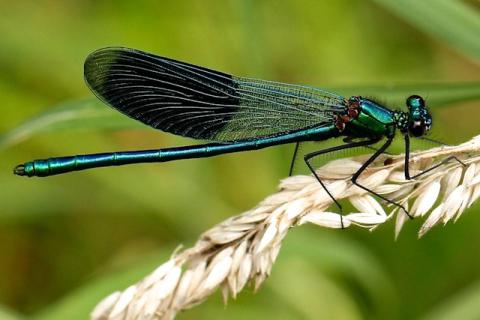Become an expert reviewer on business and biodiversity

IPBES is seeking experts from all relevant disciplines and backgrounds for the external review of its Methodological Assessment of the Impact and Dependence of Business on Biodiversity and Nature’s Contributions to People (business and biodiversity assessment)
The draft assessment is available for review for a period of 8 weeks, from 24 July to 17 September 2024. This is the only external review of this assessment.
All qualified experts, including scientists, decision makers, practitioners and other knowledge holders, are invited to participate in this peer-review process. Comments are accepted from individuals, individuals commenting on behalf of an organisation, and organisations.
Expert reviewers are acknowledged in the final report, and IPBES publishes the comments.
While reviewers are welcome to address as much of the draft as they feel capable, you are not expected to review the entire draft report: please feel free to select the sections that best match your expertise. You might find the scoping report for the assessment helpful for your review. Newcomers to IPBES will find further detailed information below.
Thank you very much for your contribution.
>> To participate, follow the steps in the official notification (EM/2024/34).
Information for newcomers
IPBES assessments
The Intergovernmental Science-Policy Platform on Biodiversity and Ecosystem Services (IPBES) is often known as "the IPCC for biodiversity".
As a major part of its work programme, IPBES provides policymakers with objective scientific assessments about the state of knowledge regarding the planet’s biodiversity, ecosystems and the contributions they make to people, as well as options and actions to protect and sustainably use these vital natural assets. These assessments may address specific themes, like for example the ongoing Nexus assessment; methodological issues, like for example the Values assessment; and both the regional and global levels, like for example the Global assessment.
The production of IPBES assessments follows a standardised process (summary, 7.75 MB). Firstly, volunteer experts compile extensive reports: researchers from a variety of disciplines, experts on Indigenous and local knowledge, policy experts, and practitioners in relevant fields. Secondly, the scientific reports are summarised for policymakers, in agreement with representatives of IPBES's 145 member countries. Both the full reports and the summaries for policymakers are freely available to the public.
IPBES draws on a wide range of sources and knowledge, and it seeks to produce reports of the highest quality. External review is therefore essential in the production of an IPBES assessment.
Hints for reviewers
Please submit your comments through the submission portal, using the template provided: this ensures that your input can be efficiently processed and is properly addressed.
Expert reviewers comment on the accuracy and completeness of the scientific, technical and socio-economic content and the overall balance between the scientific, technical and socio-economic aspects of the drafts (Annex I, Decision IPBES-2/3).
According the IPBES Guide on the production of assessments, an expert reviewer evaluates the quality, validity and relevance of the assessment. The aim of an external review is to provide authors with constructive feedback that will help in preparing an assessment of the highest quality.
As a reviewer, please
- Comment in a constructive tone.
- Comment also on parts of the text that are relevant and that should stay in the text.
- Be specific and use full citations for relevant papers when providing suggestions for text revisions.
- Suggest ways to shorten text and/or display content using figures or tables.
- Focus on substantive issues (comments on spelling, text style and grammar are not needed).
- When reviewing the draft report, also take note of the original scoping document for the assessment.
Please note that
- Comments will only be accepted in English and in the given review format.
- Comments are to be given within the review deadline.
For more detailed writing suggestions for assessment reports, please see Box 2.1 in the IPBES Guide on the production of assessments.
Thank you for joining the many experts who generously provide their time to IPBES: we're delighted to have you.
Photo by by James Wainscoat on Unsplash: Often mistaken for small dragonflies, damselflies are part of the Odonata order, which includes over 5,000 species, with about a third being damselflies. Both damselflies and dragonflies have a hinged lower lip called a labium to catch prey. Skilled hunters in both their nymph and adult stages, damselflies catch insects mid-air with their legs as adults and prey on aquatic invertebrates as nymphs.
